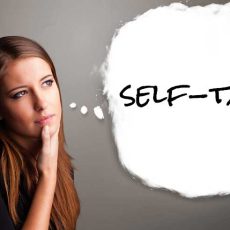Empathy is an essential ingredient for successful counseling. Empathy allows counselors to step into our clients’ stories and experience their worlds with them so that we can forge strong bonds to build an effective therapeutic relationship that allows us to journey with our clients.
Carl Rogers made it clear that we need to listen carefully, enter the world of the client, and communicate that we understand the client’s world as the client sees and experience it.
Putting yourself into another person’s shoes or viewing the world through someone else’s eyes and ears or entering into another person’s frame of reference or having the ability to experience life as the other person does by entering the person’s world of thoughts, feelings, emotions and meanings. Happy Ho organizes best Meditation and Tarot classes in Noida and Delhi NCR area in India.
In counseling, empathy is an expression of the regard and respect the counselor holds for the client whose experiences may be quite different from that of the counselor. The ability to empathize with another is enhanced by an alert attentiveness to facial expressions, body language, gestures, intuition, silences and so on. Empathy is a therapeutic tool in counseling. It allows tolerance to grow and we can deepen our understanding and acceptance of others. Empathy allows us to focus on how we are similar and we can connect and help each other.
Clients have the chance to share their stories and are able to connect with someone who does not impose judgments or criticize them. Clients are experienced as they are and given the chance to examine themselves and see who they want to become.
To be an effective counselor one should be able to practice and impart the skill of empathy in the client-counselor interaction. Being empathetic ensures you are listening and dealing with the clients concerns as they present them. You are not judging them.
By using empathy in our interactions with clients will:
1. Build the relationship
2. Stimulate self-exploration
3. Check understanding
4. Provide support
5. Assist communication
6. Focus attention on the client
According to Carl Rogers the important elements of empathy are the therapist understands the client’s feelings and the therapist responses reflects the client’s mood and the content of what has been said.
Counselor can empower the client by saying “I have a sense of your world, you are not alone, and we will go through this together” For empathy in counseling to be effective we need to perceive what the client is bringing and communicating. The benefits of empathy are apparent when the client feels confidence in the counselor. An empathetic connection deepens the client counselor relationship.





